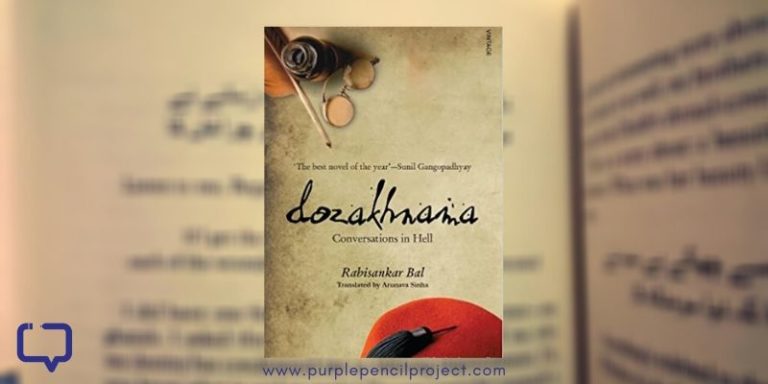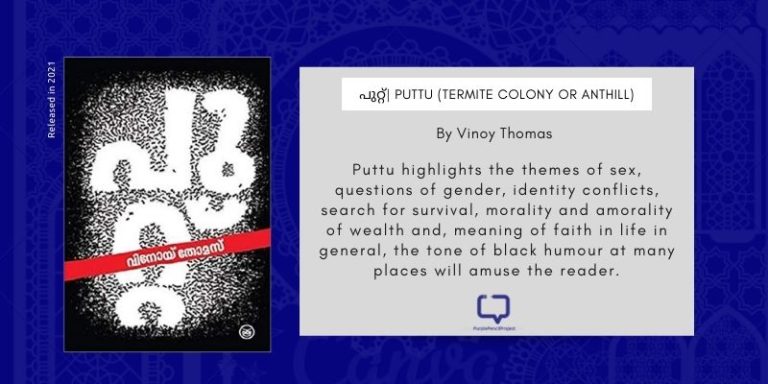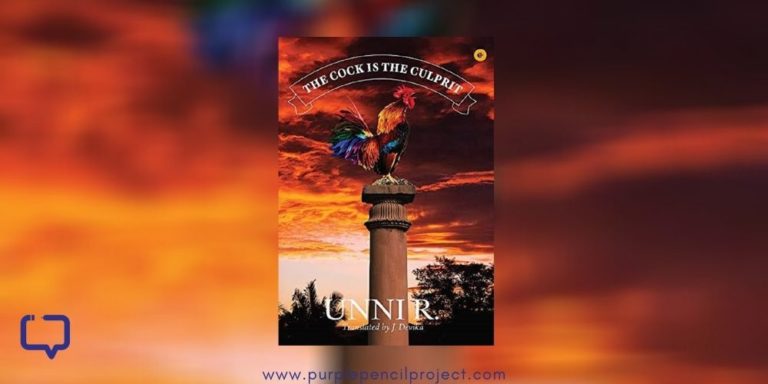When I was a little girl, my dad had a client from South India. With time he became a family friend and we frequented pujas at his house, learnt to eat curd rice on a banana leaf and my dad even went on the Sabarimala pilgrimage. But most of all, I remember greeting Acharya’s uncle (the client) with ‘Swamiye Saranam Ayyappa!’
We encourage you to buy books from a local bookstore. If that is not possible, please use the links on the page and support us. Thank you.
Reading The Warrior God – Ayyappa of Sabarimalai was like revisiting my childhood; clad in a pavada (a blouse and skirt dress made of silk donned by little South Indian girls on occasions) wearing two buns instead of ponytails, adorned with gajras and my father by my bedside, narrating the story of the legend of Sabarimalai at bedtime almost every night on my request.
Preetha Rajah Kannan establishes herself as a strong and prolific writer with her gripping narration and vivid descriptions which, keep you hooked throughout its modest length of 115 pages, whether or not you are familiar with the story itself.
Ayyappa of Sabarimalai gives a glimpse into almost all of Indian Mythology surrounding this legend, laying out how it came to be, its importance and its relevance in today’s time.
Asuras versus Devas
Ayyappa of Sabarimalai seems to be a constant tug of war between the asuras and devas to rule over the three worlds, namely, Swarga, Dharti and Patalaloka. The author successfully manages to convince you that the asuras have been given a raw deal by the Gods and have been undermined constantly, their need for revenge justified.
The storyline characterises Indian Mythology aptly – sages worshipping the Gods with offerings, tapas (penance) – a full-proof way of extracting boons from the Trimurti (Brahma, Vishnu and Mahesh), intercourse with animals (buffaloes in this book) resulting in divine offsprings, curses uttered in wrathful anger that come true, and the eternal fight between good and evil.
The book takes you through one failing asura after another in subduing the Gods, due to the latter’s treacherous schemes, clever use of loopholes in the wishes granted and the constant favours given by the Trimurti. Each chapter feels like a short story on its own, narrating incident after incident leading to the birth of The Warrior God, Ayyappa and his story.
The long and meandering storyline leading to Ayyappa is somewhat exhausting and feels drawn out despite the author’s way with words.
Spotlight: Story
The child of Shiva and Vishnu is conceived to defeat the buffalo asura princess, Mahishi. He is discovered by the river with a tinkling bell around his neck by King Rajasekara of the Pandyan Empire. King Rajasekara didn’t have any children of his own so he adopts this orphan as his heir. A sage by the riverside suggests that the boy be named Manikanthan, and then mysteriously disappears. Two years after the adoption, the queen gives birth to a son. The Prime Minister, a greedy man who wants the throne for himself, begins to poison the queen’s ears with how their legitimate son should be the rightful heir and not Manikanthan.
Manikanthan grows up to be an ascetic, and a warrior with unmatched skills; surviving assassination attempts from family, winning battles, and the heart and fancy of the whole kingdom. When he is declared the king to be, the queen, in consonance with the Prime Minister hatches a plan. She feigns extreme stomach distress which no physician can cure. Only the milk of a lactating tigress is the supposed antidote and Manikanthan volunteers to get it for his mother.
In the forest, his destiny awaits. He comes across his nemesis Mahishi, and defeats her in a fuel-raged battle that is witnessed by all of the cosmos. To the astonishment of the whole kingdom, Manikanthan returns after two days, seated on a tiger with more tigers in his wake. What follows forms the legend of Sabarimalai and why Manikanthan, a.k.a, Ayyappa, (the South Indian name of the warrior god), is worshipped to date.
Another important story to this legend is the common tale of Sabari – the old woman who offers half-eaten, sweet berries to Rama and Lakshmana, amidst their quest to find Sita after she is abducted by Raavana. The hills on which this event took place are named after her – Sabari hills, and that is where the Ayyappa temple is built. The pilgrimage to the temple is hence called Sabarimalai.
Swamiye Saranam Ayyappa!
The title of the epilogue is the chant that is the above-mentioned subhead. In the epilogue, Preetha Rajah Kannan entails the practices involved with the Sabarimalai pilgrimage. Fasting, abstinence from meat, tobacco, sex, and many others are extensively described, along with the entire journey of the said pilgrimage. The author tells us that ‘more than five crores of pilgrims make their way to Sabarimalai every year’.
It is astounding to see how religion retains tradition and culture by way of stories, as is evident from the ‘Author’s Note’ in the beginning, wherein she too reminisces her childhood, explaining why the story of Sabarimalai holds dear amidst hilarious accounts of her atheist father and devoted, religious mother. The book also has a glossary, with meanings of words like, ‘abhaya mudra’, ‘abhishekam’, ‘tandava’, etc, which is very helpful.
Book Cover
The cover depicts the epic scene wherein Manikanthan returns on a tiger, with many more big cats following him. The warrior god is characterised by his bow and arrow on the backdrop of a jungle in a colourful portrait.
Favourite Quote
Father, build me a shrine on the spot where the arrow falls. I will abide there for all eternity and shower my blessing on those who seek me there with true devotion.
Analysis and Conclusion
The blurb pulls you into the story immediately and is a well-chosen extract. The ‘Author’s Note’ is simple yet striking, welcoming you into the book with relatable anecdotes.
It’s not a perfect book. It’s too fast and often throws at you one too many characters, too much information and one too many storylines, making it hard to keep track. Despite these, the novel is spellbinding.
Warrior God of Ayyappa reads typically like a YA novel – full of descriptions, with an engaging and intriguing narrative style. What saves the book from reading like an omnibus is the brilliance of Kannan, who knows just how many words to use and where dressed in amazing metaphors and a rich vocabulary. Even if you are familiar with the Sabarimalai legend, you will enjoy this novel immensely.
Suggestions:
If you enjoyed Bahubali, you should enjoy the Warrior God Ayyappa’s story, and vice-versa.
























One Response
Nice review Jessica, am yet to read the author’s books. Hope to pick one for sure sometime soon.